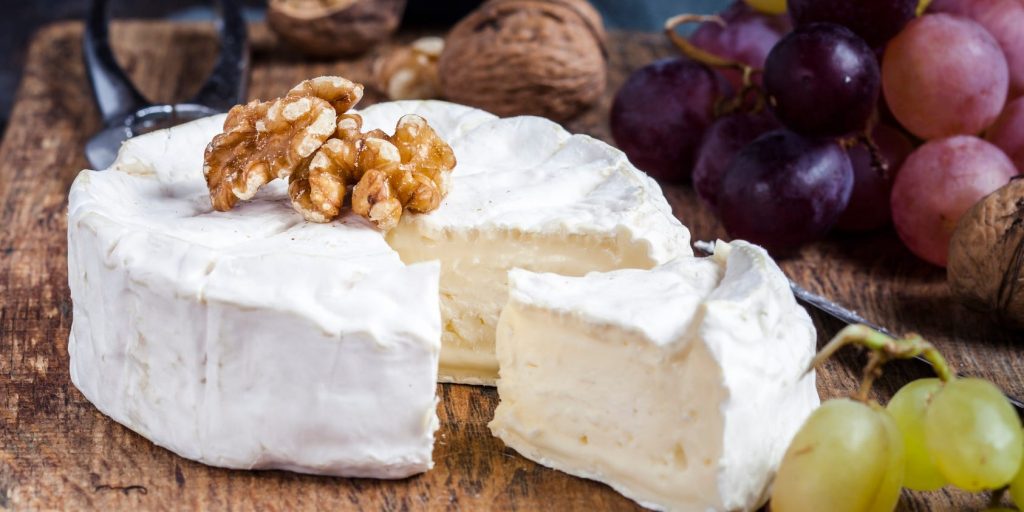Prices are accurate at the time of publication.
- Opting for a low-carb, high-protein diet could help you lose weight and manage blood sugar.
- Some healthy high-protein, low-carb foods include salmon, eggs, and Greek yogurt.
- For high-protein, low-carb snacks, choose string cheese, almonds, or sunflower seeds.
Consuming complex carbohydrates like fiber is an important part of a healthy diet, but eating lots of processed simple carbs like baked goods, sweet drinks, and refined grains can increase a person's risk of type 2 diabetes, obesity, and heart disease.
Instead, some people opt for a low-carb, high-protein diet, which may help with maintaining a healthy weight or controlling blood sugar levels.
Typically low-carb foods are anything you can consume in moderation that won't tip you over 135 grams for the day. Meanwhile, a high-protein food is one that contains about 10 grams per serving, says Angie Asche, RDN, founder of Eleat Sports Nutrition.
Here are 16 low-carb, high-protein foods:
1. Low-fat plain Greek yogurt
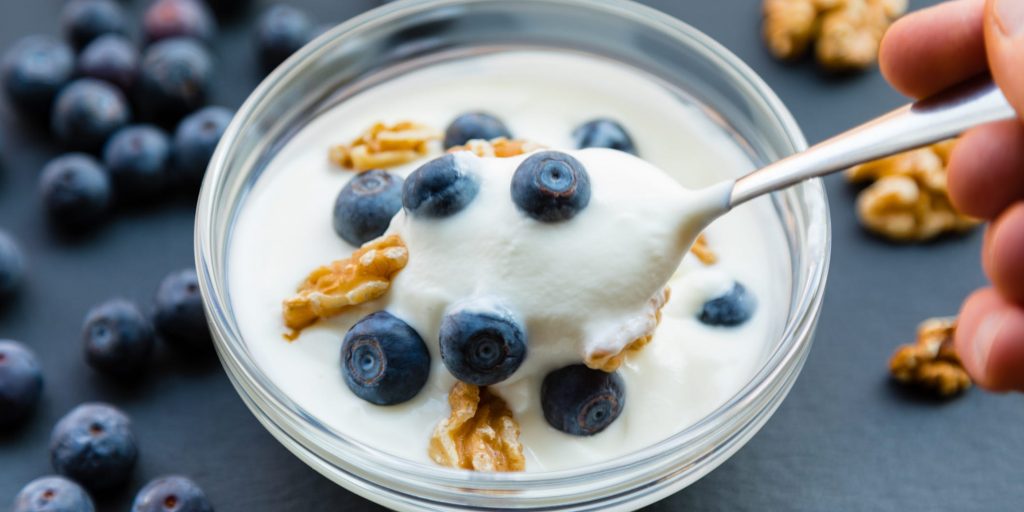
Plain Greek yogurt is creamy and has a slightly tangy or sour taste. You can enjoy it on its own with fruit and nuts or use it as a substitute for any recipes that call for sour cream or mayonnaise.
Greek yogurt also makes a good base for dressings, smoothies, and other recipes requiring milk or cream, says Cesar Sauza, a registered dietitian with AltaMed Health Services.
Three-quarters cup of plain, nonfat Greek yogurt contains:
- 59 calories
- 3.6 g of carbohydrates (1.3% DV)
- 10 g of protein (20% DV)
2. Almonds
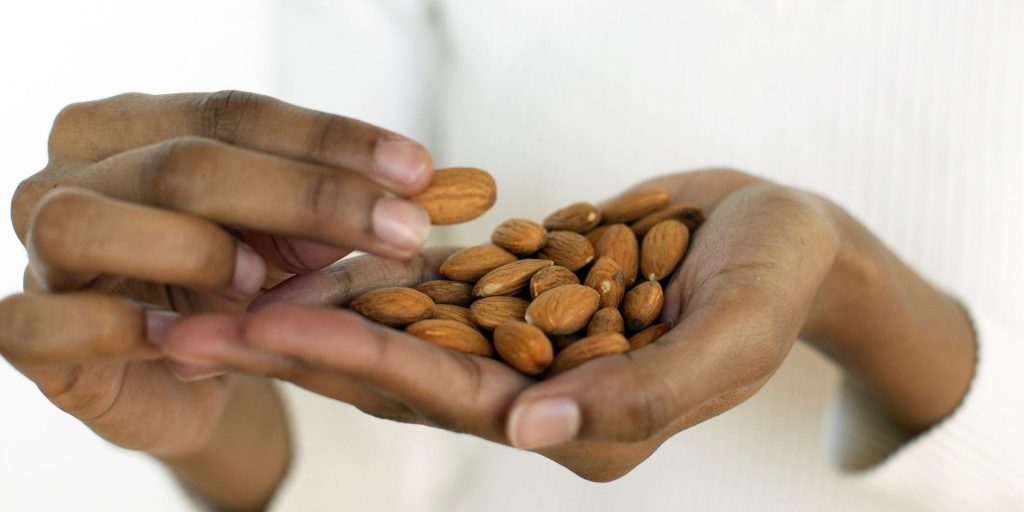
Almonds may be high in calories, but they are also a great source of unsaturated fat, which can help lower cholesterol. Sprinkle them on top of oatmeal or pair them with cheese and raw vegetables for a snack.
One ounce of almonds contains:
- 170 calories
- 6 g of carbohydrates (2% DV)
- 6 g of protein (12% DV)
3. Sunflower seeds
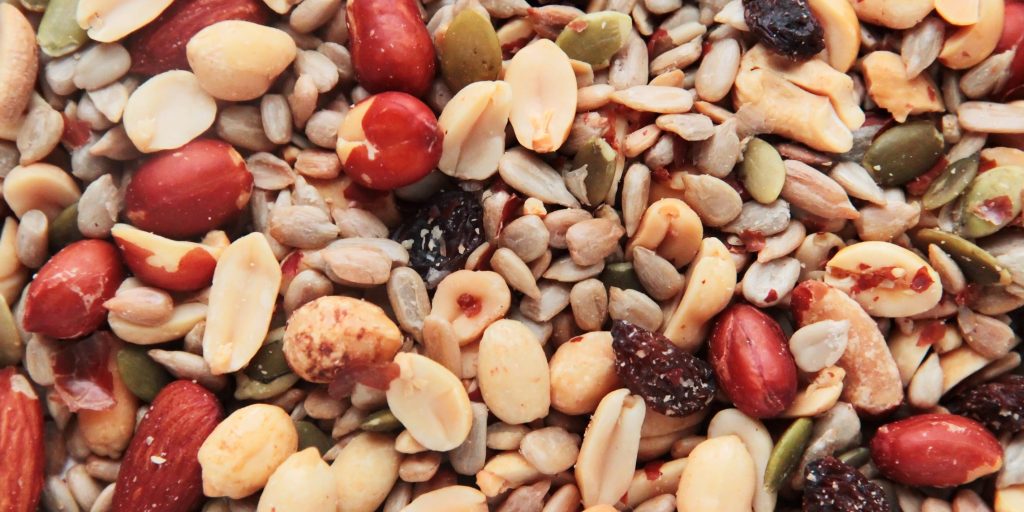
Like almonds, sunflower seeds are high in calories and rich in healthy fats, which makes them filling, Sauza says. They also add a crunchy texture to salads, yogurt, or sprinkled on top of fruit as a snack.
One-fourth cup of sunflower seeds contains:
- 208 calories
- 5 g of carbohydrates (1.8% DV)
- 6 g of protein (12% DV)
4. Canned tuna
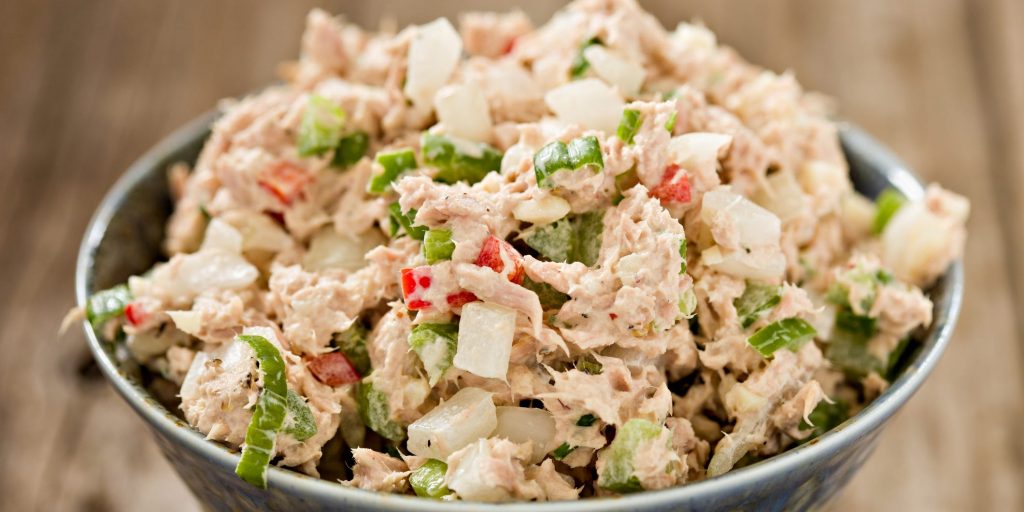
Tuna is a good source of heart-healthy omega-3 fatty acids, Sauza says. Eat it with chopped vegetables, like tomato, onion, cilantro, and peppers, or by itself with a little bit of lime and salt.
One can of tuna contains:
- 121 calories
- 0.1 g of carbohydrates (0% DV)
- 27 g of protein (54% DV)
5. Salmon
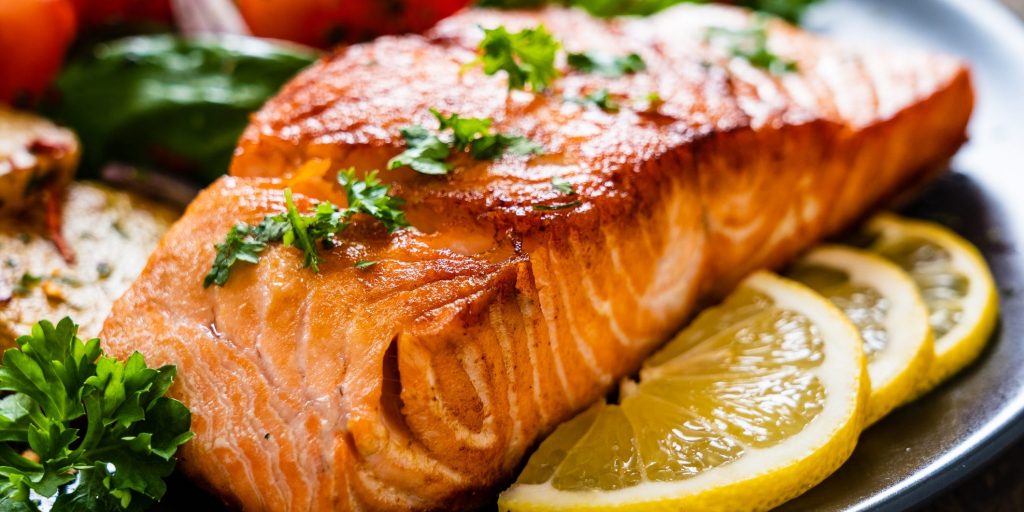
Salmon has essentially no carbohydrates and is also a good source of vitamin B12. Grill or oven-bake salmon and serve with roasted veggies for a hearty meal. Alternatively, you can buy smoked salmon at the store to eat plain or add to salads.
Three ounces of salmon contains:
- 108 calories
- 0 grams of carbohydrates (0% DV)
- 17 g of protein (34% DV)
6. Eggs
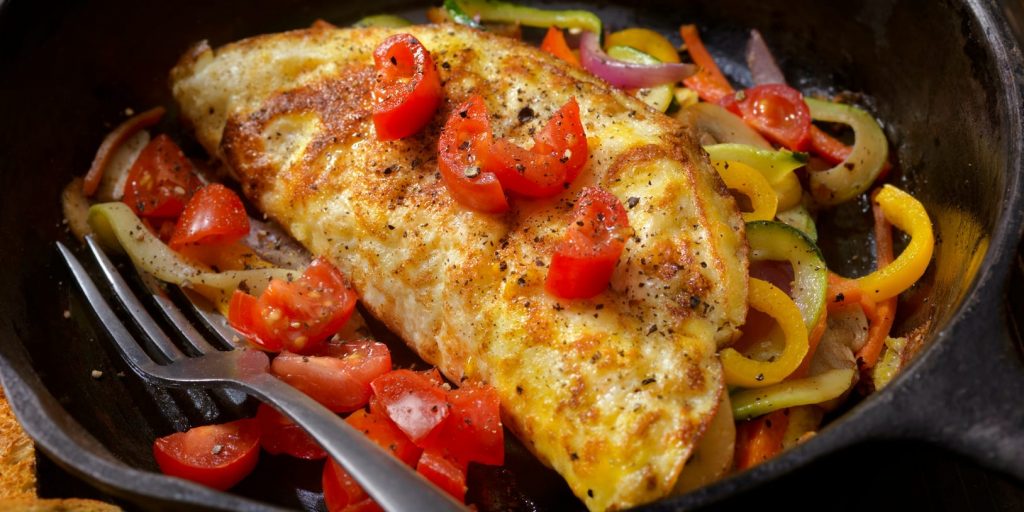
Eggs are packed with nutrients and they're incredibly versatile. Scramble them with veggies for breakfast or hard boil them to keep in the fridge for snacks.
One egg contains:
- 72 calories
- 0.5 g of carbohydrates (0% DV)
- 6 g of protein (12% DV)
7. Cheese
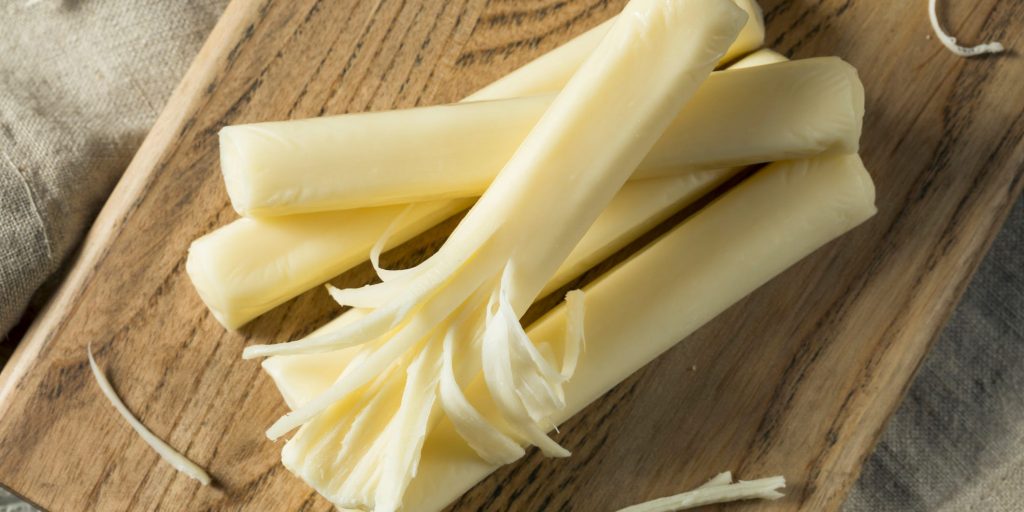
String cheese is a great low-carb option to eat on the go. You can also pair cheese with meat or veggies for lunch or dinner.
One stick of mozzarella string cheese contains:
- 85 calories
- 1.2 g of carbohydrates (0.5% DV)
- 7 g of protein (14% DV)
8. Tofu
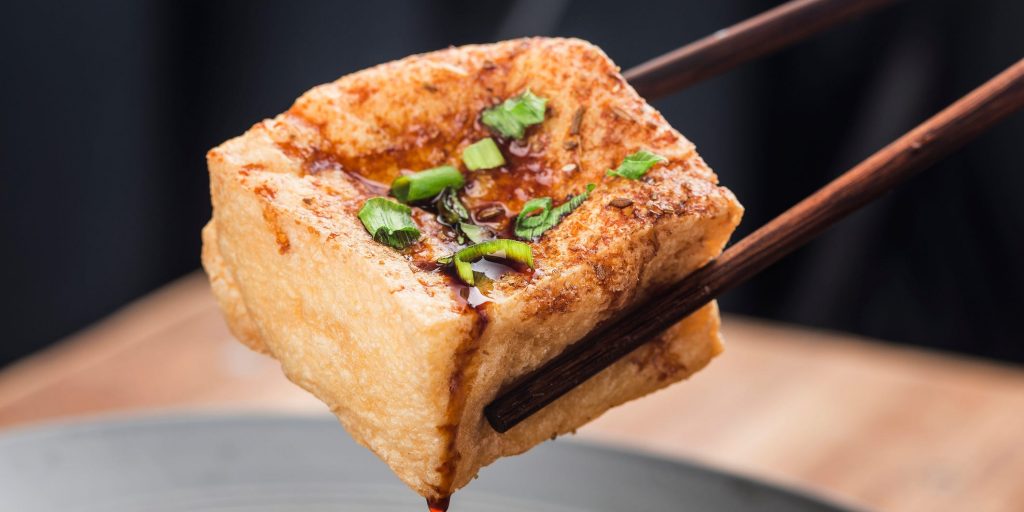
Soy foods, like tofu, are good complete sources of protein — especially for vegetarians. Stir-fry tofu with vegetables for a yummy lunch or dinner.
Three ounces of tofu contains:
- 71 calories
- 0.8 g of carbohydrates (0% DV)
- 9 g of protein (18% DV)
9. Tempeh
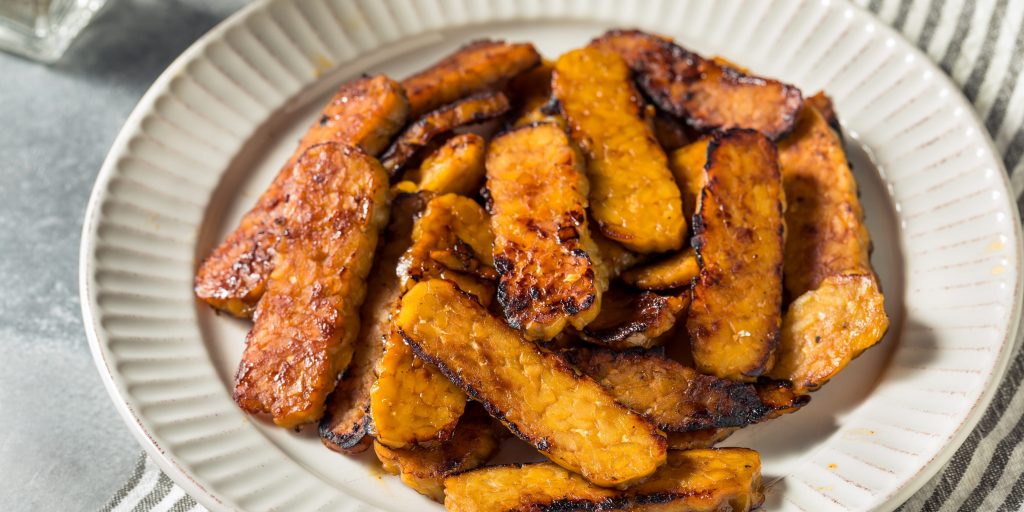
Tempeh is another soy food that makes a nice meat alternative because of its firm texture. It takes on the taste of what it is cooked in, so add it to a stir fry or season and sear it like a steak for a filling meal.
Three ounces of tempeh contains:
- 160 calories
- 13 g of carbohydrates (4.7% DV)
- 34 g of protein (68% DV)
10. Black beans
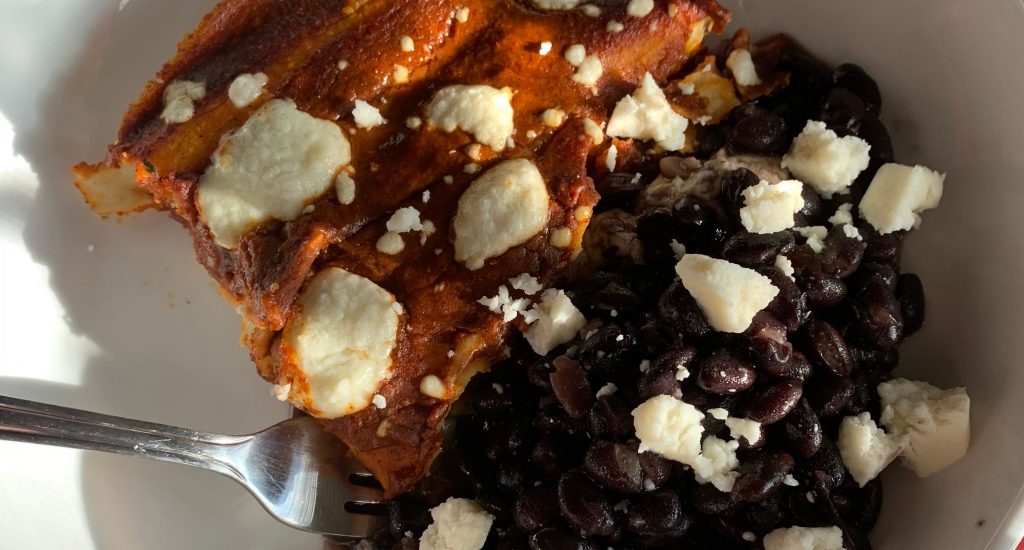
Beans are a great source of plant protein as well as fiber, which can help you maintain healthy cholesterol and blood sugar levels. Toss in some diced onions, tomatoes, cilantro, and olive oil for a tasty side dish.
One cup of black beans contains:
- 114 calories
- 20 g of carbohydrates (7.3% DV)
- 7 g of protein (14% DV)
11. Peas
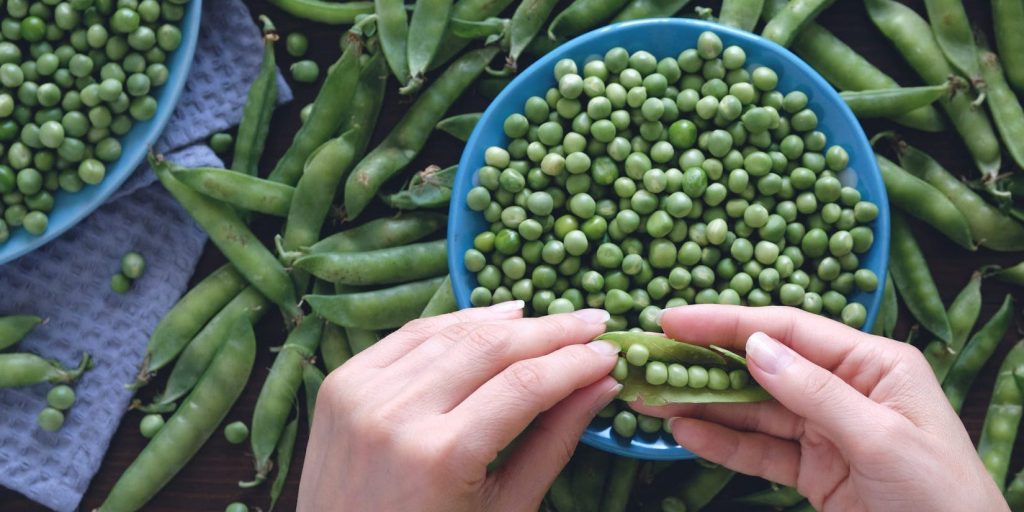
Protein-packed veggies like peas provide a healthy dose of vitamins and nutrients. Add them to a salad or steam them for a simple side dish.
One half-cup of peas contains:
- 134 calories
- 25 g of carbohydrates (9% DV)
- 8.6 g of protein (17.2% DV)
12. Edamame
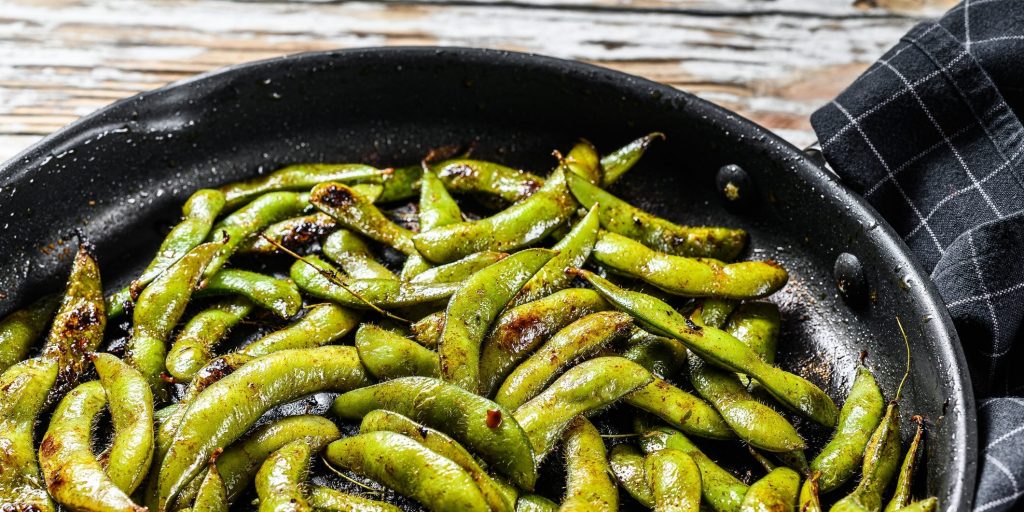
Edamame are young soybeans. They're available fresh or frozen, so sprinkle some salt — or cayenne pepper for an extra kick — and boil or steam them for a refreshing snack.
One cup of edamame contains:
- 129 calories
- 9 g of carbohydrates (3.3% DV)
- 13 g of protein (26% DV)
13. Chia seeds
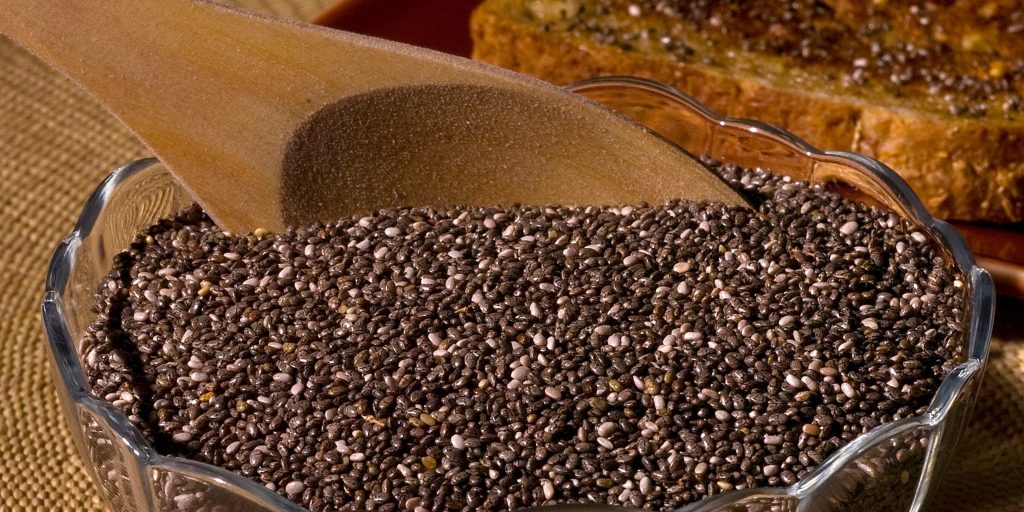
Often referred to as a "superfood," chia seeds pack a big protein punch in their small size. Eat them in yogurt or on a salad for an extra nutrient boost of protein and healthy fats.
A two-tablespoon serving of chia seeds contains:
- 138 calories
- 12 g of carbohydrates (4.4% DV)
- 5 g of protein (10% DV)
14. Peanut butter
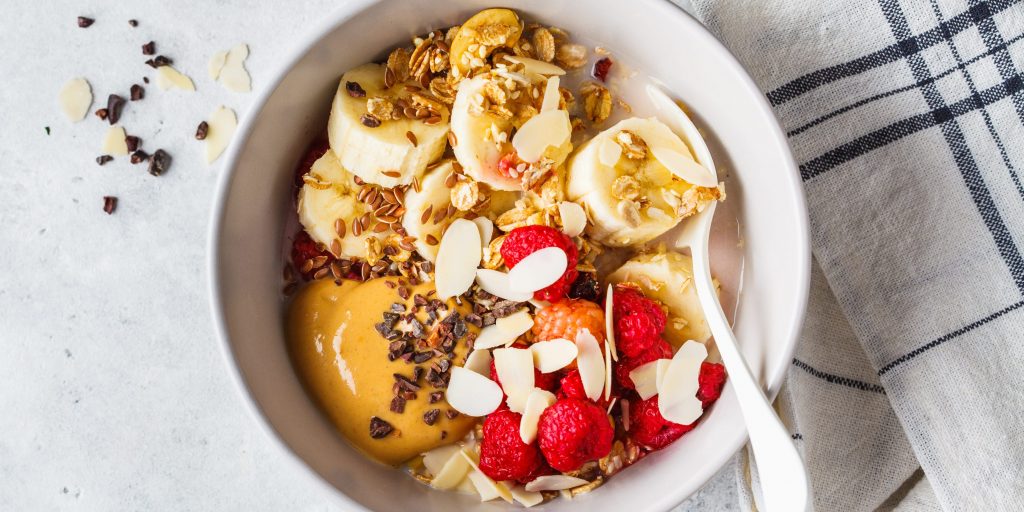
Peanut butter is an excellent plant-based protein option. Add peanut butter to celery stalks or apple wedges to increase your protein intake.
A two-tablespoon serving of peanut butter contains:
- 188 calories
- 7.7 g of carbohydrates (2.8% DV)contain
- 7 g of protein (14% DV)
15. Cottage cheese
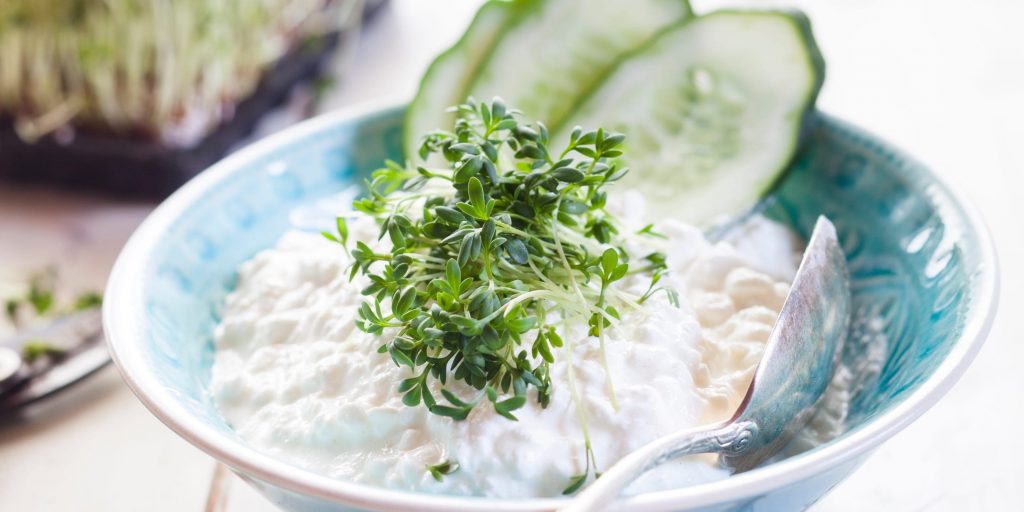
Cottage cheese is a versatile option to help you increase your protein intake. Try it plain as a savory snack or top it with fresh fruit, like pineapple, for a filling breakfast.
A half-cup of cottage cheese contains:
- 90 calories
- 9 g of carbohydrates (3.3% DV)
- 24 g of protein (48% DV)
16. Soy milk
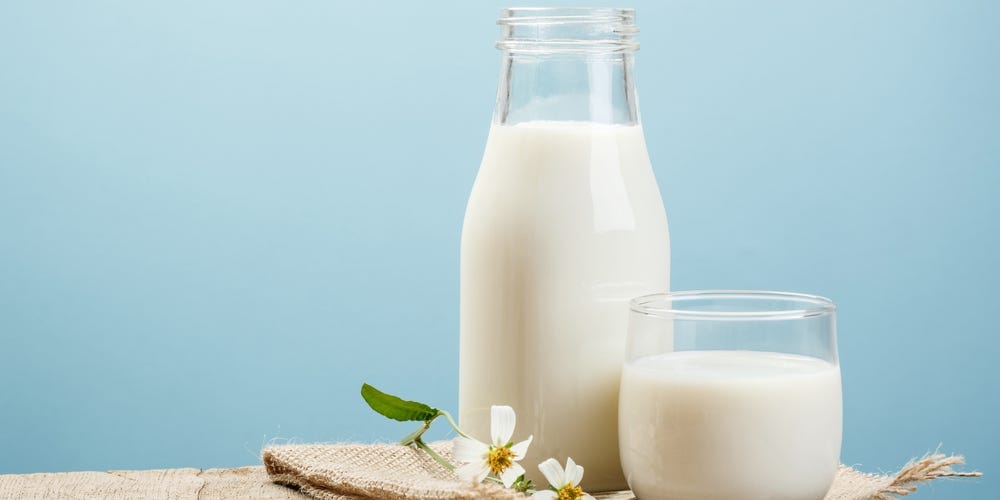
If you're looking to increase your protein through a drink, soy milk is a terrific pick. Just like dairy milk, it packs vitamins like calcium, so go ahead and swap in soy to get more protein in your diet.
One cup of soy milk contains:
- 82 calories
- 6 g of carbohydrates (2.2% DV)
- 6 g of protein (12% DV)
Insider's takeaway
Eating a high protein, low-carb diet can help you maintain a healthy weight and manage blood sugar levels, but it isn't for everyone, Sauza says. Excessive protein in the diet could damage your liver or kidneys if done long-term, and extreme low-carb diets like the keto diet should not be done without the supervision of a dietitian or medical professional.
While increasing your protein intake and limiting carbohydrates can be part of a healthy diet, eating nutrient-rich foods from all food groups is more likely to ensure you're getting the vitamins and minerals you need.
